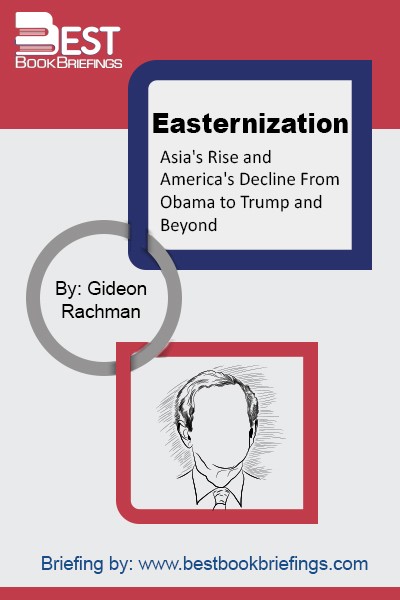Easternization
Asia's Rise and America's Decline From Obama to Trump and Beyond
Number of pages: 336
Publisher: Other Press
BBB Library: Politics and Public Affairs
ISBN: 9781590518519
Editorial Review
Easternization is the defining trend to our age—the growing wealth of Asian nations is transforming the international balance of power. This shift to the East is shaping the lives of people all over the world, the fate of nations, and the great questions of war and peace. Gideon Rachman offers a road map to the turbulent process that will define the international politics of the 21st century.
Book Reviews
Books on Related Topics

The global financial crisis has already inspired over a thousand books, not to mention myriad articles, blogs, and other commentary. Some are simply expressions of anger. Others document the hole we find ourselves in or perform forensics on how we nearly buried ourselves alive. Fewer focus on what is to be

This is not a book about the decline of America, but rather about the rise of everyone else. So begins Fareed Zakaria's important new work on the era we are now entering. Following on the success of his best-selling The Future of Freedom, Zakaria describes with equal prescience a world in

In the midst of the most serious financial upheaval since the Great Depression, legendary financier George Soros explores the origins of the crisis and its implications for the future. Soros, whose breadth of experience in financial markets is unrivaled, places the current crisis in the context of decades of study of



